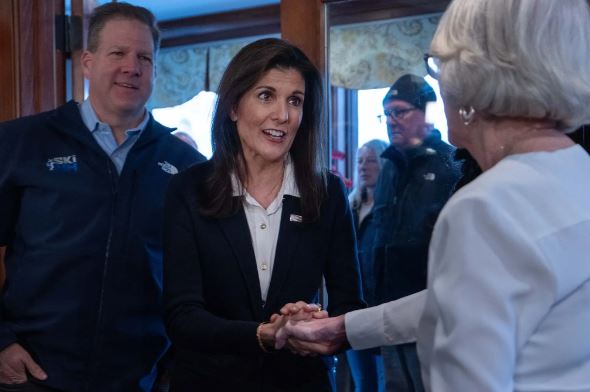As South Carolina Democrats gear up for their party’s primary on Saturday, their focus extends beyond their own race, with concerted efforts to caution voters against participating in the upcoming Republican contest. The primary election dynamics, coupled with Nikki Haley’s perceived strength, have prompted Democratic leaders to highlight Haley’s conservative record and dissuade their base from supporting her.
With President Biden facing nominal competition in the Democratic primary, the party’s attention has turned to influencing the Republican race, where Nikki Haley stands as the last contender challenging former President Donald J. Trump’s nomination. Despite Haley’s success in the first two nominating contests in Iowa and New Hampshire, her home state presents a challenging terrain, given the Republican electorate’s strong affinity for Trump.
South Carolina Democrats have intensified their efforts to portray Haley as a staunch conservative, labeling her the “mother of the MAGA movement” and emphasizing ultraconservative policies she championed during her two terms as governor. Party leaders aim to dispel any notion of Haley as a moderate Republican, urging Democrats not to underestimate her conservative credentials.
The warning from Democrats reflects the complex primary election schedule in South Carolina, where an open primary system allows voters of any party to participate in either party’s primary. While Democrats set their primary date in December 2022, Republicans scheduled theirs for later in February, leading to a situation where Democrats could potentially influence the Republican contest.
Despite the warning, there is no clear evidence that significant numbers of Democrats are aligning with Haley. Some Democrats, feeling unenthused about their own primary, consider crossing party lines to vote for Haley in the Republican primary. However, concerns linger about the potential repercussions of such a strategy.
In Beaufort, Bill Samuels, a retiree, and his wife, registered independents, are contemplating voting for Haley in the Republican primary. With limited competition in the Democratic primary, Samuels questions, “I mean, who’s Biden running against?” The sentiment underscores the strategic thinking among some Democrats who believe supporting Haley could narrow the gap in the race against Trump.
However, others express reservations, emphasizing the potential risks of meddling in the opposing party’s primary. Jon Coffey, a Democratic voter, acknowledges the strategy’s appeal but voices caution, stating, “You’ve got to be careful when you start playing with fire in a primary. It could backfire.”
The dynamic has prompted discussions about potential changes to election rules. Republicans advocate for partisan primary elections, allowing voters to participate only in the primary for the party they are registered with. Drew McKissick, chairman of the South Carolina Republican Party, criticizes the state’s open primary system, describing it as “the worst of all worlds” and advocating for limiting primary participation to those supporting the respective party.
Haley’s campaign, while appreciative of potential Democratic support, seeks to emphasize her conservative values rather than court a moderate image. Responding to Democratic efforts to dissuade their voters, Haley’s spokesperson, Olivia Perez-Cubas, suggests that Democrats would prefer Trump as the Republican nominee. Perez-Cubas points to national polls indicating that Haley could fare better against Biden in a general election than Trump, emphasizing the perceived vulnerability of the former president.
South Carolina Democrats, under the leadership of Christale Spain, chair of the state party, aim to remind their base of Haley’s conservative record, citing her role in enacting a 20-week abortion ban and resisting Medicaid expansion during her tenure as governor. Spain emphasizes the importance of Democrats recognizing Haley’s conservative stance, especially when standing next to Trump, who tends to overshadow opponents.
As the primary season unfolds in South Carolina, the interplay between party dynamics, open primary rules, and strategic voting underscores the complexities of the political landscape, with both Democrats and Republicans navigating challenges unique to the state’s election system.

